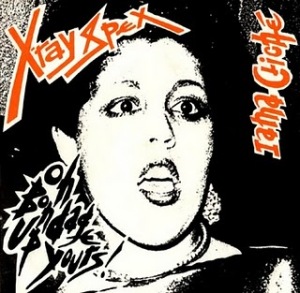A Philosophical Detour
This week I’ve been working with my undergraduates to better understand a political and cultural theorist who does, as well as anybody, a brilliant job in describing our modern system. Michel Foucault described the modern era–from the 18th-century or so to today–as the age of “disciplinary power.” As Western civilization embraced the liberalizing ideas of “individuality”, “free thought”, and “self-determination”, it also set out to rationalize and institute a system connecting these individuals to social organizations that would define, categorize, and ultimately “know” them. New categories of what it meant to be an individual emerged–worker, student, convict, delinquent, citizen, patient, etc.–to assign not only these labels, but a whole apparatus of knowledge about what these categories entailed. Who was and who wasn’t, who could or could not be, who should or should not be. While folks had always been working, or sick, or breaking the law, or studying, modern disciplinary society began treating them as individuals who possessed the qualities of “worker,” “lunatic”, “pervert,” “intellectual,” etc. In short, these categories became not just what we did, they became who we were. They became our identities. And with this identity, came tomes and tomes of analysis and understandings of each of them through laws, science, church codes, and yes, education. Our knowledge systems wanted to know as much as possible about very deviation, every difference, every nuance of individuals’ lives. It wanted every piece of social life to be “visible” so that it could understand it, study it, diagnose it, manage it, and, (here it comes) control it. Foucault calls this “Power.”
Now, Power is not necessarily bad. Rather, it’s an explanation of social order, of establishing rules and expectations, and of ensuring that certain tasks are accomplished. But what Foucault is getting at is that at the same time as we were granted “freedom” (keep in mind, this concept did not exist before), we became more beholden than ever to systems of control and surveillance. Right when we were told that we could determine for ourselves our own lives, we became subjected to an unprecedented array of disciplinary mechanisms that would keep us in line. Why? To make us more efficient and productive.
So here I am the Professor predictably blathering on about some esoteric philosophy. Yes, as one my favorite bands, the X-Ray Spex declare, “I Am a Cliche´.” But all this really does relate to our struggles with education. I swear.
Here’s a teaser: how ’bout them teacher performance evaluations?
Disciplinary power makes us more efficient, Foucault argues, by making individuals “docile bodies.” That is, when we are subjected to Power, we not only follow its rules, but we become sentinels of it, enforcing, shaming, conducting our own surveillance (on ourselves and others), to ensure that we maintain our identities as modern individuals, and preventing a knowledge of us that would cast us out as delinquent, insubordinate, trouble-maker, complainer, lazy, greedy–or any identity of the age that would go against what modern society defines as “productive.” It’s a not-so funny contradiction: ever-productive, but always docile. Doing, but only doing in the appropriate way. Many who have read Foucault have argued that with the centralization of knowledge (i.e. institutions, where knowledge “swarms”), comes the intensification of the techniques of power that determine, in effect, how we are to behave. The more that knowledge is consolidated, the fewer ways that we can imagine ourselves as productive are available. Docility then, becomes that much easier to manage.
The Practical Dilemma
Last weekend I spoke frankly to a dear friend of mine who teaches in my 5th-grade daughter’s school. I expressed to her that I am strongly considering pulling my daughter out during the days of PSSA’s as an act of civil disobedience. Oh wait, I mean because of my religion. Yeah that’s it.
My daughter is a high achiever and an excellent student. She loves school and is always excited about learning. And, she absolutely dreads test days. She senses the pressure on the school, she knows that the day is chopped up arbitrarily, she abhors finishing the test and having to sit at her desk, without a book, without anything to draw, essentially being detained for the remainder of the testing period. This is not what school is to her. It certainly isn’t to me either.
You can imagine how my friend paled at this prospect. She is aware that my daughter’s score will not only “help” the school but also the teachers. “You would be punishing us!”
Of course, this had me thinking about our emphasis on testing as a “technology” of disciplinary power. In other words, it’s a tool, like any technology, that serves a productive purpose.
Forget about Ipads and I-Ready, this is the age of technology and education we’re living in.
I know I’m preaching to the choir in being critical of high-stakes testing, but what really frightens me is how the system of testing is not AT ALL about measuring student achievement. It’s about the consolidation of knowledge. Of surrendering teachers’ creative abilities, professional talents, and human innovations to a curriculum (knowledge) that is defined elsewhere, from beyond, and authored anonymously by PDE, Pearson, First-in-Math, the Common Core. Y’know, “power.” And as a consolidation of knowledge, it is a highly intricate (highly technological) system of surveillance.
I really enjoyed Ellen Hartman’s blog about navigating online education as a teacher , but was appalled, but that not surprised, at what she was up against as a talented teaching professional. She writes:
Teachers have very little power to manipulate or change the curriculum. If there is an essay question that I do not feel is an effective measure of understanding, I cannot change it. If there are multiple choice questions with incorrect answers, I have to go through a process which takes a few weeks to enact change, if at all. (“The Online Choice”)
And what she is too judicious to say, I imagine, is that if she doesn’t following these specific disciplinary protocol, she will lose her job.
When it comes to the high-stakes tests, every single person employed with the school has his or her job in the balance if the disciplinary mechanisms aren’t followed. Ask the janitor what happens if he or she doesn’t disclose every person who has a key to where the tests are stored. But more, I think, is the entire culture of education that has teachers running scared and is skewering education everywhere. The technology for disciplining–and by this I do mean CONTROLLING–teachers has never before been as sophisticated as it is today. The market disciplines teachers with the glut of applicants for every job opening, student loans discipline teachers by looming financially over their future, and budget cuts discipline teachers with the threat of retrenchment. Oh yeah, and then there are those teacher performance evaluation that ensure that you’re teaching the “right stuff.” Of course, it’s not just teachers. Principals are scared too. So are school boards. So are parents. So are politicians. One has to wonder who’s left.
Recourse?
Bleak business when it’s laid out like this. To return to Foucault again, his whole theory works with the premise that modern society functions productively when it defines and categorizes us as individuals, and hence can effectively define us as docile bodies. What if we were to define ourselves not as individuals, but as groups, as collectivities, as the “mass”?
There’s gotta be something there….

